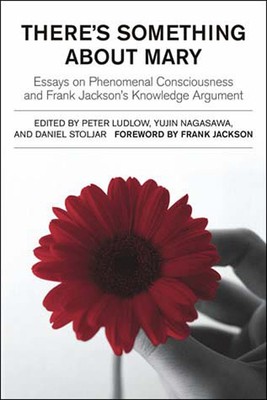
- We will send in 10–14 business days.
- Publisher: MIT Press (MA)
- ISBN-10: 0262621894
- ISBN-13: 9780262621892
- Format: 16.2 x 22.7 x 2.6 cm, softcover
- Language: English
- SAVE -10% with code: EXTRA
There's Something about Mary (e-book) (used book) | bookbook.eu
Reviews
Description
In Frank Jackson's famous thought experiment, Mary is confined to a black-and-white room and educated through black-and-white books and lectures on a black-and-white television. In this way, she learns everything there is to know about the physical world. If physicalism--the doctrine that everything is physical--is true, then Mary seems to know all there is to know. What happens, then, when she emerges from her black-and-white room and sees the color red for the first time? Jackson's knowledge argument says that Mary comes to know a new fact about color, and that, therefore, physicalism is false. The knowledge argument remains one of the most controversial and important arguments in contemporary philosophy.There's Something About Mary--the first book devoted solely to the argument--collects the main essays in which Jackson presents (and later rejects) his argument along with key responses by other philosophers. These responses are organized around a series of questions: Does Mary learn anything new? Does she gain only know-how (the ability hypothesis), or merely get acquainted with something she knew previously (the acquaintance hypothesis)? Does she learn a genuinely new fact or an old fact in disguise? And finally, does she really know all the physical facts before her release, or is this a misdescription? The arguments presented in this comprehensive collection have important implications for the philosophy of mind and the study of consciousness.
EXTRA 10 % discount with code: EXTRA
The promotion ends in 21d.00:31:38
The discount code is valid when purchasing from 10 €. Discounts do not stack.
- Publisher: MIT Press (MA)
- ISBN-10: 0262621894
- ISBN-13: 9780262621892
- Format: 16.2 x 22.7 x 2.6 cm, softcover
- Language: English English
In Frank Jackson's famous thought experiment, Mary is confined to a black-and-white room and educated through black-and-white books and lectures on a black-and-white television. In this way, she learns everything there is to know about the physical world. If physicalism--the doctrine that everything is physical--is true, then Mary seems to know all there is to know. What happens, then, when she emerges from her black-and-white room and sees the color red for the first time? Jackson's knowledge argument says that Mary comes to know a new fact about color, and that, therefore, physicalism is false. The knowledge argument remains one of the most controversial and important arguments in contemporary philosophy.There's Something About Mary--the first book devoted solely to the argument--collects the main essays in which Jackson presents (and later rejects) his argument along with key responses by other philosophers. These responses are organized around a series of questions: Does Mary learn anything new? Does she gain only know-how (the ability hypothesis), or merely get acquainted with something she knew previously (the acquaintance hypothesis)? Does she learn a genuinely new fact or an old fact in disguise? And finally, does she really know all the physical facts before her release, or is this a misdescription? The arguments presented in this comprehensive collection have important implications for the philosophy of mind and the study of consciousness.


Reviews